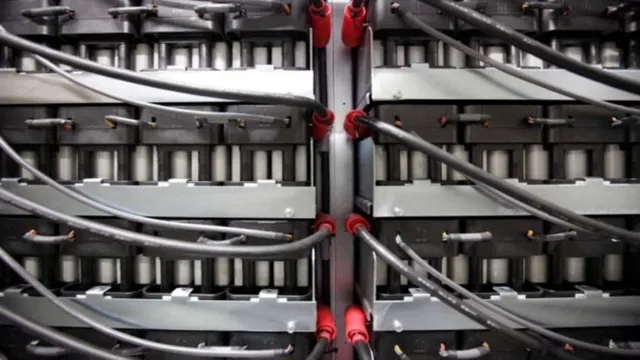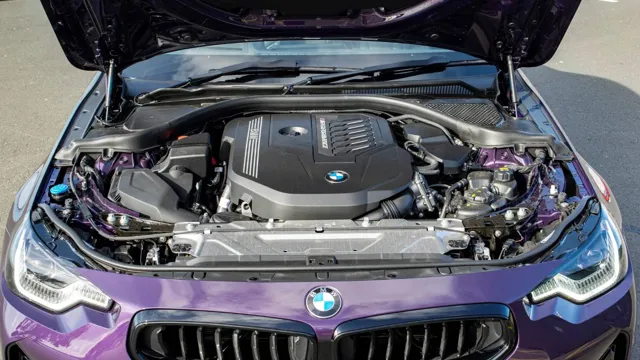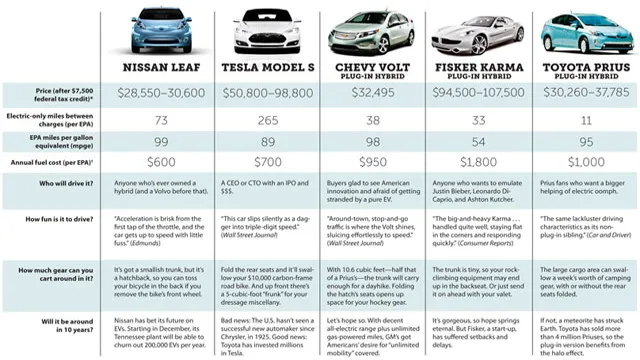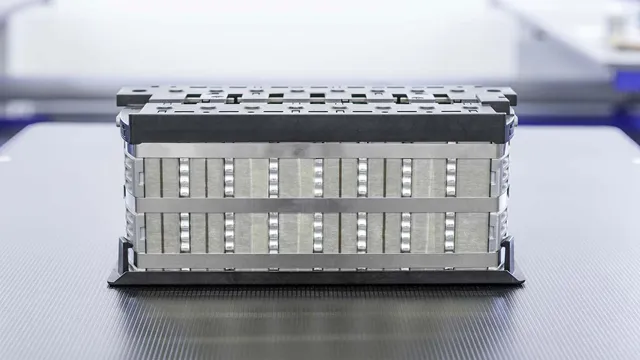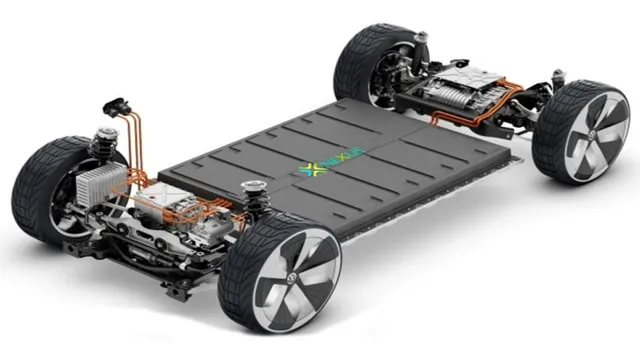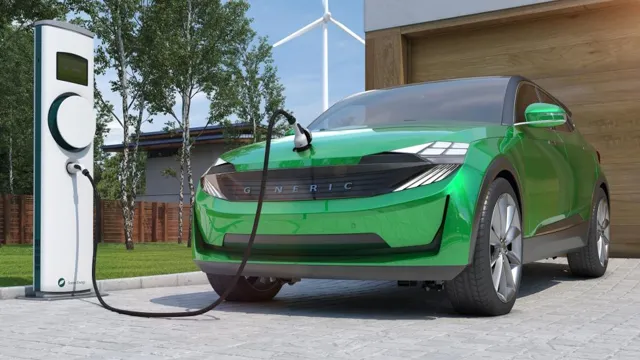Charging Up: Debunking the Myths Behind Electric Car Batteries and Their Impact on the Environment
Electric cars are often touted as the future of transportation. They’re efficient, cost-effective, and environmentally friendly. But have you ever wondered about the environmental impact of the batteries that power these vehicles? Electric car batteries are an essential component of the electric car, as they are responsible for storing and delivering the energy that powers the motor.
However, the manufacturing of these batteries has environmental implications that are often overlooked. One of the main concerns is the production of the batteries, which requires the extraction and transport of raw materials like lithium, cobalt, and nickel. This mining process can have a significant environmental impact, involving deforestation, water scarcity, and the release of toxic chemicals.
Furthermore, the disposal of these batteries can pose a problem, as they contain harmful chemicals like lead, cadmium, and mercury. These chemicals can seep into groundwater and soil, contaminating the environment and endangering wildlife. However, there are steps being taken to make electric car batteries more sustainable.
Companies are working towards developing more recyclable and eco-friendly battery materials, while recycling facilities are being established to recover the valuable components from used batteries. In conclusion, electric car batteries do have an impact on the environment, but with continued research and development, we can work towards making them a more sustainable option for transportation.
Battery production’s environmental impact
Electric cars are often touted as a cleaner, more sustainable alternative to traditional gas-powered vehicles. While electric vehicles emit less greenhouse gases while driving, there is some debate over whether the production of their batteries is actually good for the environment. Battery production requires a significant amount of energy, and much of the production process involves extracting and processing raw materials, like lithium, nickel, and cobalt, from the earth.
These processes can be resource-intensive and polluting, and there are concerns about the environmental impact of mining, transportation, and manufacturing of batteries. However, as the technology behind electric vehicles improves, there are efforts underway to source raw materials sustainably and reduce the energy required to produce batteries. As such, while electric vehicle batteries may not be entirely eco-friendly just yet, there is hope that they will become more so in the future.
Mining and refining raw materials
When we think of electric cars, we imagine a greener and more sustainable future. However, the production of batteries that power these cars has a significant environmental impact. Mining and refining raw materials, such as lithium, cobalt, and nickel, required for battery production, are resource-intensive processes that generate carbon emissions and contribute to deforestation, soil degradation, and water pollution.
These raw materials are often sourced from countries with weak labor and environmental regulations, leading to human rights violations and ecological damages. Moreover, battery production consumes a considerable amount of energy, primarily generated by fossil fuels, further exacerbating greenhouse gas emissions. The challenge is to create more sustainable supply chains and improve the recycling of batteries to reduce carbon footprint and minimize environmental harm.
We must also consider alternative materials and technologies to move towards a circular economy and reduce our dependence on non-renewable resources.

Energy-intensive manufacturing process
Battery production is an energy-intensive manufacturing process that has a significant environmental impact. The production of batteries involves several stages, from mining raw materials to manufacturing and transporting finished products. For instance, the extraction of metals like cobalt, nickel, and lithium requires large amounts of energy and water, leading to significant greenhouse gas emissions and environmental degradation.
Furthermore, battery manufacturing plants consume considerable energy and produce emissions, including carbon dioxide and other harmful pollutants. The transportation of batteries to end-users and disposal of old batteries at the end of their useful life also contribute to the environmental impact. Therefore, battery manufacturers must adopt sustainable practices to reduce their carbon footprint, promote responsible mining, and encourage recycling and reuse of old batteries.
Overall, the production of batteries must balance the growing demand for energy storage with the need to reduce the environmental impact, and this requires collaboration among all stakeholders in the battery supply chain.
Electric cars’ environmental benefits
If you’re wondering whether electric car batteries are good for the environment, the answer is yes! Electric cars offer several environmental benefits over their gasoline-powered counterparts. One of the most significant benefits is that they produce zero emissions, reducing air pollution and improving air quality in urban areas. Renewable energy sources like wind and solar power can also be used to charge electric cars, reducing dependency on fossil fuels.
Many electric car batteries also have the potential to be recycled or repurposed, reducing the environmental impact of producing and disposing of harmful waste. Overall, choosing to drive an electric car can have a big impact on the environment, improving air quality and reducing our carbon footprint. So, if you care about the environment and want to drive a car that’s both eco-friendly and practical, an electric car could be the perfect choice for you.
Reducing emissions and air pollution
Electric cars are swiftly becoming a symbol of hope in the fight against air pollution and climate change. Traditional petrol and diesel cars contribute significantly to global warming through their emissions of carbon dioxide, nitrogen oxides, and other harmful pollutants. Electric vehicles, on the other hand, run entirely on electricity and produce zero emissions.
In fact, electric cars emit 40-60% fewer greenhouse gases than their petrol and diesel counterparts. They also release fewer particulate matter, a primary cause of respiratory diseases that are responsible for thousands of premature deaths every year. The use of electric cars can have a significant impact not only on the climate but also on air quality, making our cities healthier and our environment cleaner.
By making a switch to electric cars, we can reduce our carbon footprint, contribute to slowing down global warming, and pave the way for a better future.
Decreasing dependence on fossil fuels
Electric cars are a game-changer when it comes to reducing our dependence on fossil fuels and decreasing our carbon footprint. These vehicles rely on an electric motor rather than a gasoline engine, which means they emit significantly fewer pollutants, including carbon dioxide, into the atmosphere. Additionally, electric cars may be charged with renewable energy sources such as solar or wind power, making them even more environmentally friendly.
By switching to electric vehicles, we can dramatically reduce the amount of greenhouse gas emissions we produce and work toward a more sustainable future. Not only are electric cars better for the environment, but they can also save drivers money on fuel costs, as electricity is typically cheaper than gasoline. It’s time to prioritize the adoption of electric cars and make a positive impact on the planet.
Promoting renewable energy
Electric cars have become a more popular choice for those who want to reduce their carbon footprint and contribute to a greener environment. With zero tailpipe emissions, they are undoubtedly an environmentally friendly option for transportation. Electric cars are powered by rechargeable batteries, so they do not require gasoline or diesel fuel, which means they produce fewer harmful emissions than traditional vehicles.
Moreover, electric cars can be powered by renewable energy such as solar, wind, and hydro. By promoting renewable energy sources, we can reduce our reliance on fossil fuels and move towards a more sustainable energy future. In conclusion, electric cars are not only efficient and cost-effective but also help to preserve the environment.
The more we prioritize green transportation options like electric cars, the closer we will get to a cleaner, healthier planet.
Battery disposal and recycling
When it comes to electric car batteries, one of the biggest concerns is their impact on the environment. While these batteries don’t emit harmful gases like traditional cars, their disposal and recycling can still have negative consequences. However, the good news is that most electric car batteries are designed with recyclability in mind.
Once they reach the end of their lifespan, they can be repurposed and recycled to create new batteries or other products. This not only reduces waste but also cuts down on the need for new materials to be mined. So, while electric car batteries may not be perfect, they are certainly better for the environment than traditional car batteries and offer a more sustainable future for the automotive industry.
Challenges of battery disposal
Battery disposal and recycling present significant challenges, especially with the growing popularity of rechargeable batteries in electronics and electric vehicles. These batteries contain valuable materials like lithium and cobalt, but also toxic chemicals like lead and mercury. When improperly disposed of, these chemicals can contaminate the environment and harm human health.
Recycling can help recover these valuable materials and reduce environmental impact, but the process is complex and requires specialized equipment and facilities. Additionally, the lack of proper collection and disposal systems in many areas poses logistical challenges to battery recycling efforts. Nevertheless, it’s crucial to address these challenges and improve battery disposal and recycling practices to minimize negative impacts and promote sustainability.
So, next time you’re done with your battery, don’t toss it in the trash – recycle it instead!
Potential for battery recycling
As the world continues to rely more and more on rechargeable batteries to power our lives, the issue of proper disposal and recycling grows increasingly important. Fortunately, there is tremendous potential for battery recycling. This process involves extracting valuable materials from spent batteries and reusing them to create new batteries or other products.
Not only does this reduce the amount of waste going into landfills, but it also conserves valuable resources that might otherwise be lost. In fact, some experts estimate that up to 95% of the materials in batteries could be recovered and reused through recycling. This includes metals such as lithium, cobalt, and nickel, which are essential components of many types of batteries.
By properly disposing of batteries and supporting recycling efforts, we can ensure that the batteries we rely on each day continue to power our lives in a sustainable and environmentally friendly way.
Conclusion: The overall impact of electric car batteries
In conclusion, when it comes to the question of whether electric car batteries are good for the environment, the answer is a resounding “it depends.” While electric cars themselves produce zero emissions and can greatly reduce an individual’s carbon footprint, the production and disposal of electric car batteries can have negative environmental impacts. However, as technology advances and manufacturers become more sustainable in their battery production and recycling practices, the benefits of electric car batteries for the environment will only continue to grow.
So, in short, electric car batteries can be good for the environment, but let’s make sure we’re doing our part to help them live up to their full potential.”
FAQs
How do electric car batteries affect the environment?
Electric car batteries reduce greenhouse gas emissions and improve air quality since they don’t produce tailpipe emissions like gasoline or diesel vehicles. However, the production of electric car batteries can have negative environmental impacts due to the mining and extraction of metals and minerals.
Can electric car batteries be recycled?
Yes, most of the materials in electric car batteries are recyclable, including lithium, cobalt, and nickel. Recycling these materials can reduce the demand for mining and reduce the environmental impact of battery production.
Are electric car batteries more expensive than traditional car batteries?
Yes, electric car batteries are currently more expensive than traditional car batteries, but their prices are expected to continue to drop as technology advances and production scales up.
What happens to electric car batteries at the end of their life?
When electric car batteries reach the end of their life, they can be repurposed for other uses like energy storage for homes or businesses, or they can be recycled to recover valuable metals and minimize waste.

